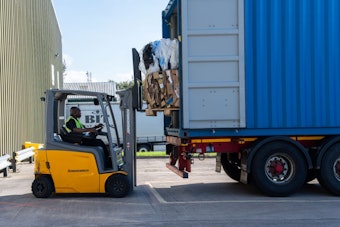A few years back there emerged this widely accepted observation about the future: In 1980, 80% of the complexity of equipment was mechanical, but by 2020, only 20% of it will be mechanical, and electronics will replace the mechanics.
And so it was that Mechatronics--the synergistic combination of precision mechanical engineering, electronic control, and system thinking in the design of packaging machinery and systems—was born. By including Mechatronics in the curricula at the world’s educational institutions, it was thought, we’d increase the likelihood that the workforce of the future would be prepared for a world where 80% of equipment’s complexity revolves around electronics. Now Shane Loughlin of systems integrator SL Controls Ltd., along with researchers at Ireland’s Dublin Institute of Technology, is suggesting that while Mechatronics is indeed a step in the right direction, there’s a gap between where we need to be mechatronically and how we’re training people to get there.
Loughlin’s primary focus is in the pharmaceutical and medical device industries. The problem there, as he sees it, is that to train people in Mechatronics, colleges have used some combination of mechanical experts or electronics experts. What they haven’t been using are people who buy, validate, commission, and run equipment. The perspectives of these people must shape to a greater degree the mechatronic training that’s currently available in today’s educational institutions.
It’s another way of saying that the educational system needs to be more customer focused. That way, the packaging machinery procurement process in the pharmaceutical and medical device communities will be shaped by the operations, maintenance, and validation people and not as much by the equipment engineers. “Too often today, with equipment engineers driving procurement, the project becomes the customer, not the customer,” says Loughlin.
Another shortcoming that Loughlin sees in the procurement process of today is that there is no consistent or standardized academic qualification or accreditation that prepares people to be equipment procurers. Consequently, if one works at Pfizer, the equipment procurement skills learned there might not be of any use if that person goes to another healthcare manufacturing company. “So it’s difficult to entice individuals into a mode of self-improvement,” says Loughlin.
Loughlin and a group of associates at Dublin Institute of Technology have looked into this issue of training and have come up with some intriguing recommendations about how it might be improved. Loughlin will present his findings at The Automation Conference May 14-15 in Chicago. Full details of the TAC program, including registration details, are available here.


























